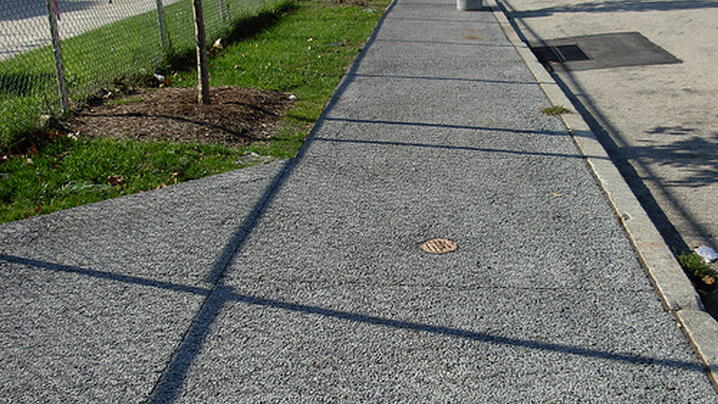
A Washington Post article describes Pennsylvania and the City of Philadelphia’s effort to use eco friendly means to reduce the amount of rainwater contaminated by road oil, litter, and sewage trickling into rivers and streams by establishing a 25- year, $2billion “Green City, Clean Waters” plan. Environmentalists call it a landmark as it is the largest project in the Unites States, to minimize storm water pollution through green infrastructure like porous asphalt and rooftop gardens. According to the EPA, the initiative, will serve as a model for other jurisdictions as the modifications are supposed to lessen the sewer overflow from entering important waterways like the Delaware and Schuylkill rivers by 80% to 90%.
The project will be funded by a “combination of city water fees, state and federal grants and loan, as well as support from private investors and foundations.” It will result in an approximate $8 increase to resident’s monthly bill over 20 years; however the plan is reportedly lower than alternative plans for infrastructure expansion.
The “Green City, Clean Waters” plan includes the planting of thousands of new trees on road sides, setting up green roofs on building roofs, and repaving of roads and parking lots with porous asphalt that allows water to be absorbed into the ground. Ultimately, the project aims to improve the state of the city’s waterways and result in the betterment of the environment, while creating jobs and enhancing quality of life. Following a six month appraisal to decide the areas for the first phase, the City has begun the repaving process.
Philadelphia’s effort has received accolade and Mayor Michael Nutter envisions the project as a step toward making Philadelphia “the greenest city in the country.” To this end, the document Greenworks Philadelphia, available on the Knowledge Network, elaborates on the city’s 2007 Local Action Plan for Climate Change by establishing long and short term targets and strategies.
The Green Infrastructure Investment Program by Alachua County, Florida is also a useful best practice case study on integrating environmental protection policies for land conservation. For more resources visit the Knowledge Network Documents or Topic pages Public Works, Wastewater, Water Utilities, Environment, Air, Climate and Water, Parks and Recreation, and Planning.
Do you have experience using green infrastructure? What kind of changes are you making to your jurisdiction to promote a clean and healthy environment?
New, Reduced Membership Dues
A new, reduced dues rate is available for CAOs/ACAOs, along with additional discounts for those in smaller communities, has been implemented. Learn more and be sure to join or renew today!
